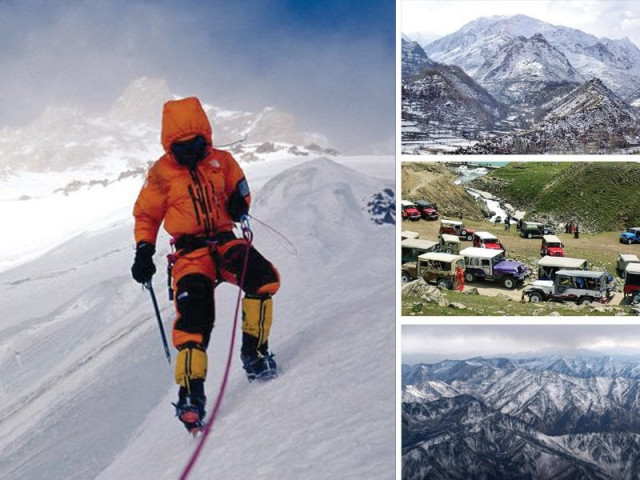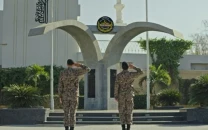The day the music died: Tourism in Pakistan might have lost its last foothold
For those who depend on trekking seasons, the Nanga Parbat tragedy spells out the end of a livelihood.

For those who depend on trekking seasons, the Nanga Parbat tragedy spells out the end of a livelihood
. PHOTOS: FILE
After the killing of 10 foreign tourists and one Pakistani at the base camp of Nanga Parbat, tourism in the country is only left with the closing credits and a swan song. Tour operators and locals foresee an end of an industry, or whatever remained of it post 9/11.
For people working in tourism, the ripple-effect of the 9/11 attacks was felt by way of fewer international visitors. This in turn had an impact on foreign reserves, forex and rendered thousands of people in related fields jobless.
“This (attack) could be the test case for Pakistan. If the government manages to arrest those responsible for the murder of the tourists and bring them to justice then it would have not so many implications,” argued Naik Nam, the operations manager of a leading tour company in the country. “If the government fails to apprehend them, then I don’t think any tourist will dare visit Pakistan.”
He worried the failure of the government to catch the killers will not only discourage foreign tourists but will give encourage terrorists to carry out more such brutal acts.
The average foreign tourist has almost vanished from Pakistan since the attack on the twin towers. Many countries issued adverse travel advisories for their citizens planning to visit Pakistan, and in Khyber-Pakhtunkhwa and Gilgit-Baltistan (G-B) this came as a sharp pinch for those whose income depended on gawking sightseers.
But trekking expeditions, Nam went on to explain, would still be lured by the challenge to traverse some of the highest peaks in G-B. Now those will also come to an end in the wake of this tragedy, feared Nam.
What remained of tourism post 9/11
Even after the war on terror started in our own backyard, pointed out Nam, a palpable tourism industry remained in G-B. Today, at least 250,000 to 300,000 people in Gilgit-Baltistan are directly and indirectly involved in this business. They would be jobless if foreigners completely stopped visiting Pakistan fearful for their safety.
If tourists stop coming to the area, Nam stipulated it would destroy the businesses of the remaining hotel owners, transporters, and handicrafts and cottage industry entrepreneurs. All of which would trample the socio-economic ground laid by locals.
More than Rs200 million is doled out by foreign climbers just to the porters at the Baltro glacier in a single season, he cited. Transporters, tour guides and others involved earn significant amounts through such transactions.
Sultan Khan, a tour operator at the Nazir Sabir Expedition, agreed that 9/11 impacted tourism significantly and the Nanga Parbat massacre would have more implications than the previous incidents of foreigners being targeted. “I don’t think a fragile tourism industry will have any future following such a big tragedy,” said Sultan. Nazir Sabir Expedition used to deal with at least 10 to 12 groups a year before September 2001.This later dropped down to two to three groups, according to Sultan. After the Nanga Parbat incident, everything is covered in uncertainty, he added.
Till 2001, around 100 to 120 expedition groups used to visit Pakistan annually and now the number is somewhere below 50, said the tour operator.
According to Sultan, there was a brief period of respite during 2004 and 2005 – then suicide attacks became a regular feature in the country. Somehow things picked up after 2009, but the killing of Osama bin Laden in Abbottabad – on Pakistani soil – did not help the trade of tourism.
As far as Sultan Khan is concerned, what happened at Nanga Parbat will bury the tourism industry for a foreseeable future.
Published in The Express Tribune, June 26th, 2013.



















COMMENTS
Comments are moderated and generally will be posted if they are on-topic and not abusive.
For more information, please see our Comments FAQ